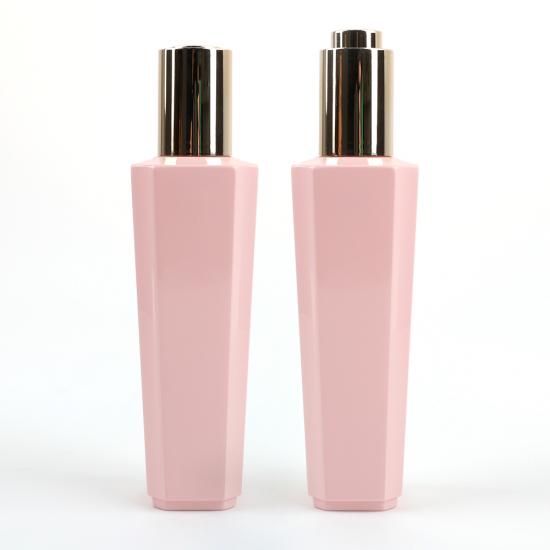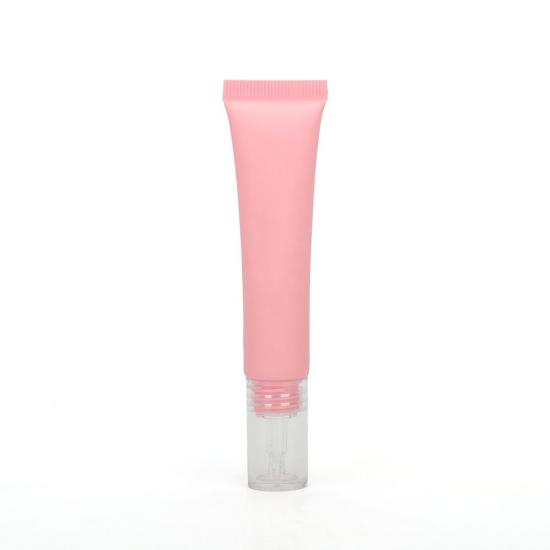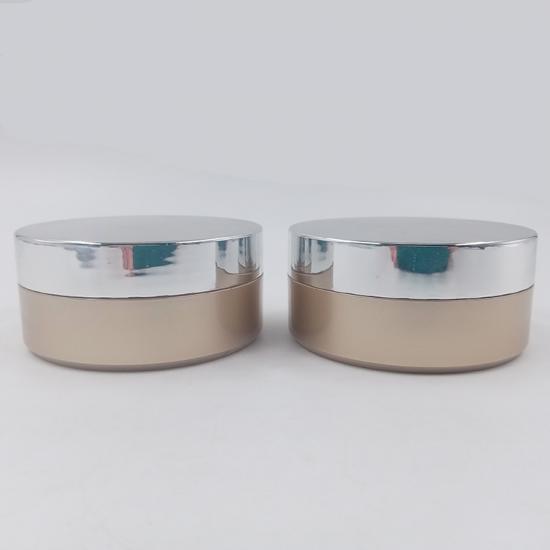GUANGZHOU QIAONENG PLASTIC PRODUCT CO.,LTD is a professional cosmetic packaging manufacturer which integrated with R&D, Production and sales of tubes, plastic cosmetic bottles, plastic jars of flexible packaging.
Company Establishment




























Are you searching for unique,special and attractive cosmetic packaging in the market?Come to QIAONENG,own modern high-tech factory with advanced equipment in Guangzhou China,offer one-stop CUSTOMIZATION SERVICE, Just tell us what do you want,We help you dream coming true,Let your product be outstanding!

Polyethylene (PE) is the most widely used plastic globally, valued for its versatility, cost-effectiveness, and adaptable properties. Its features vary by density (e.g., LDPE, HDPE, LLDPE), but core characteristics include: Core Features: 1. Chemical Resistance - Highly resistant to acids, bases, solvents, alcohols, and water. - Ideal for containers holding cleaning agents, fuels, and chemicals. 2. Moisture Barrier - Excellent water vapor barrier (low permeability), making it perfect for packaging films, bottles, and pipes. 3. Flexibility & Toughness - LDPE/LLDPE: Highly flexible, impact-resistant (e.g., squeeze bottles, plastic bags). - HDPE: Rigid yet tough (e.g., milk jugs, cutting boards). 4. Electrical Insulation - Low electrical conductivity, widely used in wire/cable coatings. 5. Lightweight - Low density (0.91–0.97 g/cm³), reducing transport costs. 6. Ease of Processing - Easily molded via injection molding, blow molding, or extruded into films/fibers. 7. Food-Safe & Non-Toxic - FDA/EC compliant grades available for food packaging and medical devices. 8. Recyclability - Widely recycled (♳: HDPE, ♴: LDPE). --- Variants & Their Unique Traits: Type Density Key Properties Common Uses ---------------------------------------------------------- HDPE High (0.94–0.97 g/cm³) Rigid, strong, weather-resistant Pipes, fuel tanks, toys, hard hats LDPE Low (0.91–0.93 g/cm³) Flexible, transparent, easy to seal Plastic bags, cling film, squeezable bottles LLDPE Linear Low Superior puncture/impact resistance Stretch wrap, agricultural films, covers UHMWPE Ultra-High Extreme abrasion resistance, low friction Medical implants, conveyor belts, bulletproof vests --- Limitations: - Low Heat Resistance: Softens at 80–120°C (varies by type). - UV Degradation: Requires additives (e.g., carbon black) for outdoor use. - Poor Adhesion: Surface treatments needed for printing/gluing. - Permeable to Gases: Not ideal for carbonated drinks (often uses PET instead). --- Applications: - Packaging: Bags, films, bottles, containers. - Construction: Pipes, geomembranes, insulation. - Consumer Goods: Toys, kitchenware, caps. - Industrial: Chemical tanks, cutting boards, bearings. PE’s balance of durability, processability, and recyclability ensures its dominance across industries, though selecting the
Jul 09, 2025
Key Limitations of AS Plastic: 1. Poor UV Resistance - Turns yellow or becomes brittle when exposed to sunlight/UV rays. - Impact: Unsuitable for transparent packaging meant for sun-exposed displays (e.g., storefronts). Requires UV stabilizers or opaque coatings. 2. Low Chemical Resistance to Solvents - Vulnerable to strong solvents (e.g., acetone, ketones, chlorinated hydrocarbons). - Impact: May crack or haze when filled with solvent-based cosmetics (e.g., nail polish removers, certain perfumes). 3. Moderate Barrier Properties - Allows higher oxygen/moisture transmission than PET or PP. - Impact: Not ideal for oxidation-sensitive formulas (e.g., vitamin C serums, organic oils) unless paired with special liners. 4. Thermal Sensitivity - Low heat deflection temperature (∼90–100°C). - Impact: Cannot withstand hot-fill processes or high-temperature sterilization (e.g., autoclaving). May deform in hot climates during transit. 5. Limited Impact Resistance - More brittle than ABS, PC, or PP. Prone to cracking under sharp impacts. - Impact: Risky for travel-friendly packaging or dense products (e.g., thick creams in large jars). 6. Scratch Vulnerability - Softer surface than PMMA or glass. Easily scratched during handling. - Impact: Loses clarity/gloss over time; affects premium aesthetics. 7. Not Food-Grade Compliant for All Regulations - Some AS formulations may leach styrene monomers under extreme conditions. - Impact: Requires strict compliance testing for lip/eye products in regulated markets (e.g., EU, FDA). When to Avoid AS Plastic in Cosmetics: - Products requiring long-term UV exposure (e.g., sunscreen, window-displayed items). - Formulas with high solvent content (e.g., nail polish, removers, alcohol-heavy toners >20%). - Hot-fill processes (e.g., molten waxes, hot-pour formulations). - Oxygen-sensitive actives (e.g., retinoids, unstable antioxidants). - High-impact applications (e.g., thick cream jars, compacts prone to dropping). --- Alternatives for Demanding Applications: | Limitation | Better Alternatives | |---------------------|----------------------------| | UV Resistance | PMMA (acrylic), UV-stabilized PET | | Chemical Resistance | PP, HDPE, COP/COC | | Barrier Properties | PET, EVOH-multilayer, Glass | | Heat Resistance | PP, PPSU, Glass ...
Jun 24, 2025Please read on, stay posted, subscribe, and we welcome you to tell us what you think.